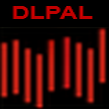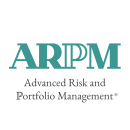New related paper to #8 – FX Momentum
"The purpose of this study is to investigate whether the momentum anomaly in currency markets may be driven by global economic risk. In doing so, it employs different measures of cross-sectional currency return dispersion (RD) that are assumed to capture general global economic conditions. If the payoffs of the momentum strategy are associated with global economic risk, and RD captures global macroeconomic conditions, we hypothesize that the momentum payoffs would be significantly higher in states of high global economic risk. We make use of various different measures of cross-sectional dispersion in asset returns and employed them successively in our analysis. In doing so, we sort the observations of cross-sectional currency return dispersion into above and below-median values indicating high and low dispersion regimes which, in turn, are interpreted as states of economic stress and ease, respectively. This approach is closely related to that of Stambaugh et al. (2012), who investigated the relation between investor sentiment and cross-sectional anomalies in the US equity market. In a regression analysis, the long and short legs of the momentum strategy are regressed on dummy variable models to test whether the strategy’s payoffs depend on the state of the world economy. To check robustness, we also used the innovations of a model that uses the market-adjusted returns of cross-sectional currency dispersion and repeated the analysis.
We further hypothesize that whether cross-sectional currency return dispersion captures global economic risk, this risk should also be present in global equity markets. To answer this question, we estimate cross-sectional dispersion in global equity markets using a set of domestic country index futures. A principal component analysis was employed to investigate whether the variation in cross-sectional dispersion in global equity and currency markets can be explained by a dominant factor. In a robustness check, we also investigate whether the dispersion processes in those different markets are cointegrated. The presence of cointegration would imply a long-term
relationship between these two different markets.
Our findings contribute to the existing literature in the following respects. We believe this paper is the first to document a robust link between the returns of the momentum anomaly in currency markets and global economic risk. For internationally aligned investors, it is most important to uncover the risks associated with their investment strategies. For example, our findings may help better understand the economic implications of dispersion in currencies. Moreover, our findings address how currency and equity markets are linked together. Under global economic stress, the momentum payoffs are considerably larger than in times when the global economy is quiet. Specifically, our findings indicate that the relation between momentum payoffs and an increase in global risk appears to be linear, and those findings are supported by various robustness checks. Employing a principal component analysis of cross-sectional dispersion in global equity markets and currency markets provides new evidence that these risk factors share a common component. We argue that the spread between the cross-sectional return dispersion in global equity and currency markets is a mean-reverting stationary process which, in turn, implies that the same global risk component that drives return dispersion in currencies is also present in global equity markets."
Are you looking for more strategies to read about? Check http://quantpedia.com/Screener
Do you want to see performance of trading systems we described? Check http://quantpedia.com/Chart/Performance
Do you want to know more about us? Check http://quantpedia.com/Home/About
Share onLinkedInTwitterFacebookRefer to a friend
























